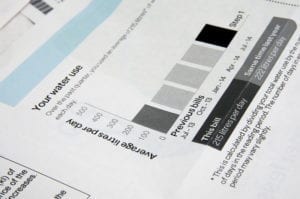Tenant & Renter Rights in Massachusetts
Understanding Utility Billing as a Renter
Massachusetts has very specific laws protecting renters from unfair billing practices as they relate to water, sewer, electric and heating bills. In fact, if your landlord is not adhering to these specific laws, you could be entitled to significant compensation and attorneys’ fees.
 Even if you signed a lease agreement which states you are responsible for paying for water, or another utility bill, if your landlord did not follow the laws, then you may still be due money.
Even if you signed a lease agreement which states you are responsible for paying for water, or another utility bill, if your landlord did not follow the laws, then you may still be due money.
Most tenants in Massachusetts probably assume that it is completely legal for their landlord, or the water company, to charge them directly for usage. However, in order to legally do this, the landlord must follow strict guidelines, to ensure, you, the tenant, is not being overcharged.
Start Your Free Confidential Case Review!
Landlord Water Billing Laws
As an example, under Massachusetts law, there are numerous conditions which must be met before a landlord can LEGALLY charge a tenant for water usage. This list is not exclusive, however, some of the conditions which must be met are highlighted below:
- The rental agreement must “clearly and conspicuously” spell out the details of the water billing arrangement between the landlord and the tenant. This means that the language regarding the billing of water usage must be understandable to the tenant signing the lease and cannot be hidden in the fine print of the rental agreement.
- A licensed Massachusetts plumber must install submetering equipment for each individual unit so water usage for each particular unit can be tracked. The landlord must pay for the installation of the submetering equipment.
- All showerheads, faucets, and water closets in the units must have water conservation devices installed on them by a licensed Massachusetts plumber. The landlord must also certify under the penalties of perjury that the dwelling unit is “eligible for the imposition on the tenant of a charge for water usage.”
- The submeter can only measure the water usage for the specific dwelling unit and cannot include usage in any common areas.
These are only a few of the conditions which a landlord MUST follow in order to legally charge a tenant directly for water usage. Payment in these situations may be to the landlord/management company, a town, or the utility company.
Do you have a utility billing claim?
If you can answer yes to –
- Live in an apartment complex as a tenant/renter (not an owner), AND
- Pay your water/sewer bill directly to your landlord (not as part of your base, monthly rent), the town or a utility company
Then you may be entitled to significant compensation. Call our offices at 1-800-494-7758 today for more information.
